Review: HARPER LEE'S TO KILL A MOCKINGBIRD Opens at Nashville's Tennessee Performing Arts Center
Sorkin's Adaptation Downplays White Saviorism to Take On Christian Nationalism and White Supremacy
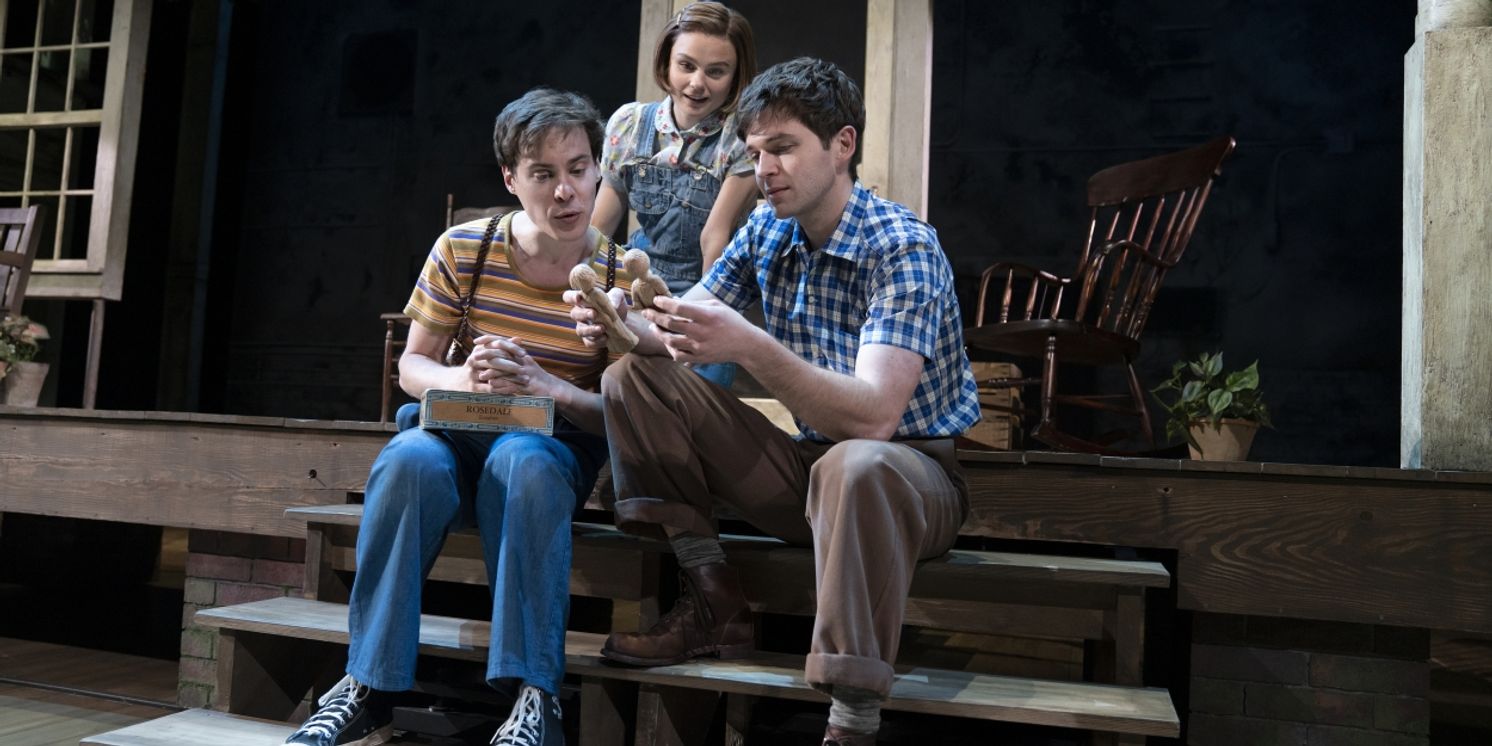
Hard to believe though it may be, To Kill A Mockingbird - the novel by Harper Lee that is quite possibly the most widely read book about racism and its despicable legacy in America - was only published 62 years ago. Perhaps even more surprising is the fact that within two years of its initial publication it had been made into a film (with a screenplay by Horton Foote) that was nominated for eight Academy Awards, including one for best picture.
Ask any literate American who also considers herself or himself to be a cinephile and the odds are very good that they're going to claim To Kill A Mockingbird as their favorite book, movie and movie made from a beloved book. And, lord knows, a higher percentage of good Southerners who fall into that rarefied category are likely to claim Nelle Harper Lee's fictionalized account of a 1936 incident in her Alabama hometown as number one on their list of most revered works of Southern Gothic fiction. It seems, quite frankly, that To Kill A Mockingbird (or rather, our enthusiasm for it, our love for the words, our veneration of its characters) essentially is derived from our DNA, even as our laconic drawl and cavalier demeanor seems to have evolved over the years, to the point that we're all so homogenized now that it's hard to tell somebody whose people come from Birmingham or Chattanooga from somebody who hails from Des Moines or Butte, Montana, for that matter.
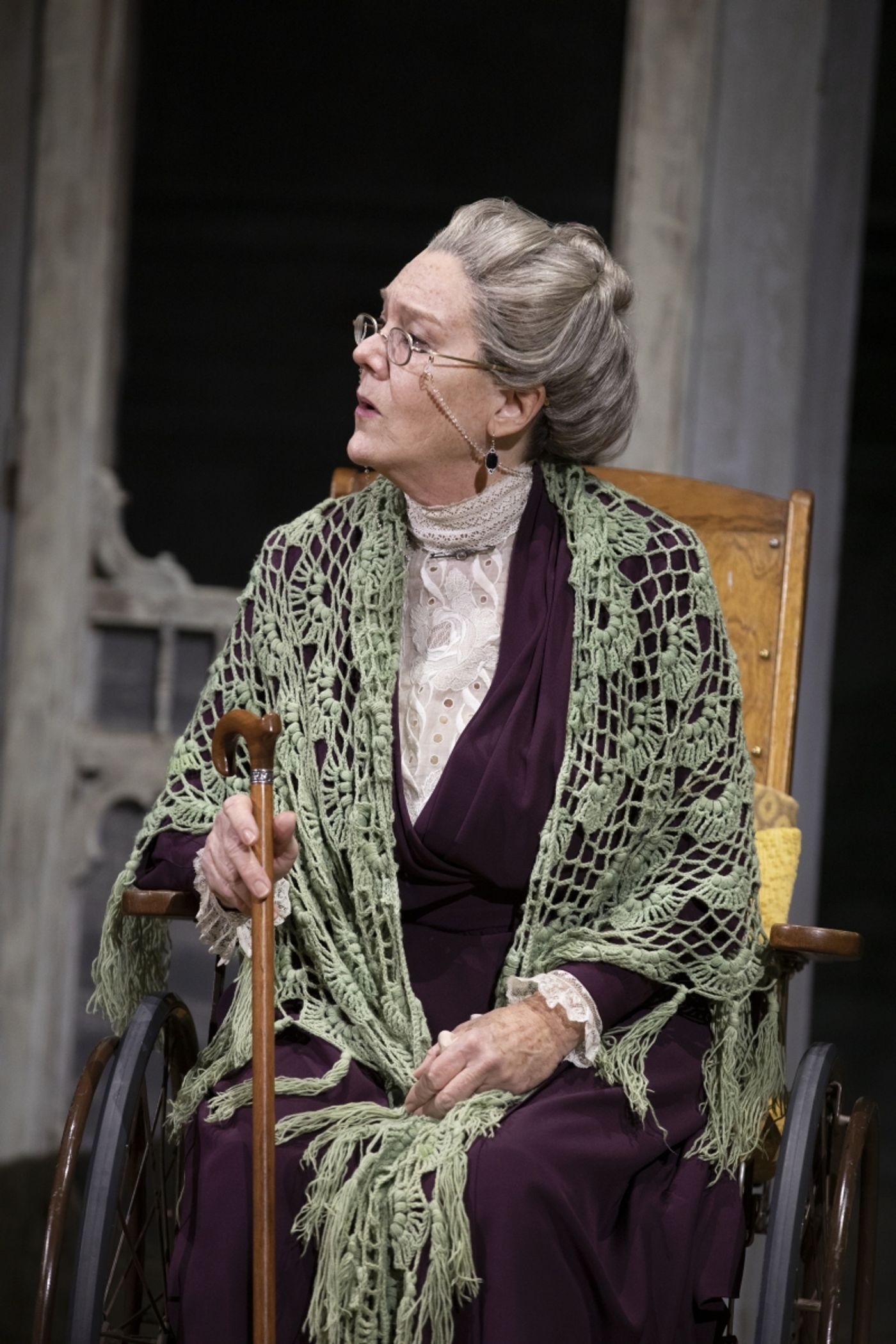
the role of Scout in the 1962 film, plays
neighborhood racist Mrs. DeBose in
the national touring company of
Harper Lee's To Kill a Mockingbird.
Beloved though it may be, why in the ever-loving hell has it taken so long for To Kill a Mockingbird to become a theatrical play that is actually worthy of its literary heritage? Sure, there's been a 1990 (?!) version by Christopher Sergel that's made it way so many times through every high school auditorium, community theater playhouse and regional theater over the intervening three decades that we are, quite frankly, sick to death of it. In fact, if we never see it again, it'll be too g.d. soon: a warmed over, treacly and maudlin rehash that's far too dependent on the title's movie roots to really emerge from a darkened theater heralded as a consummate and classic American play.
That is, until now - or to be more precise, it was in 2018, when Aaron Sorkin (yep, the same guy who wrote A Few Good Men, The West Wing, The Social Network and Being the Ricardos) debuted his version of Harper Lee's To Kill A Mockingbird, which opened to varying levels of critical acclaim on Broadway, all the while racking up ticket sales that made it the most successful non-musical production to ever play a theater owned by The Shubert Organization (which means the Broadway theater-going public loved it) and is now proving equally as successful on tour throughout the United States and in London's West End where it continues to play at the Gielgud Theatre, starring Rafe Spall as Atticus Finch.
Now onstage at Nashville's Tennessee Performing Arts Center's Andrew Jackson Hall through Sunday, August 14, with a top-flight cast led by Emmy Award-winning, Tony Award-nominated actor Richard Thomas, To Kill A Mockingbird may well prove to be Sorkin's legacy, his most acclaimed creation: He has crafted a play that differs from its source material in many ways, but he adroitly makes it resonate for contemporary audiences by writing a play that confronts the twin specters of white supremacy and Christian nationalism in this country, while trying to mitigate the impact of Lee's tendency toward themes of a white savior (Atticus Finch) demonstrating legal heroics for the good, if put-upon and struggling to survive black folk of 1934 Maycomb, Alabama.
And, if you're keeping score, Atticus loses the courtroom battle that is at the heart of Lee's novel, thus his well-intentioned, but unsuccessful, legal efforts don't provide the emotional uplift one divined from the book in 1960, the movie in 1962 or even the Sergel script of 1990. Rather, Sorkin's version of small-town lawyer Atticus - who is "paid with vegetables," he quips in the 2018 script - seems a far more accessible and authentic figure than that which has come before.
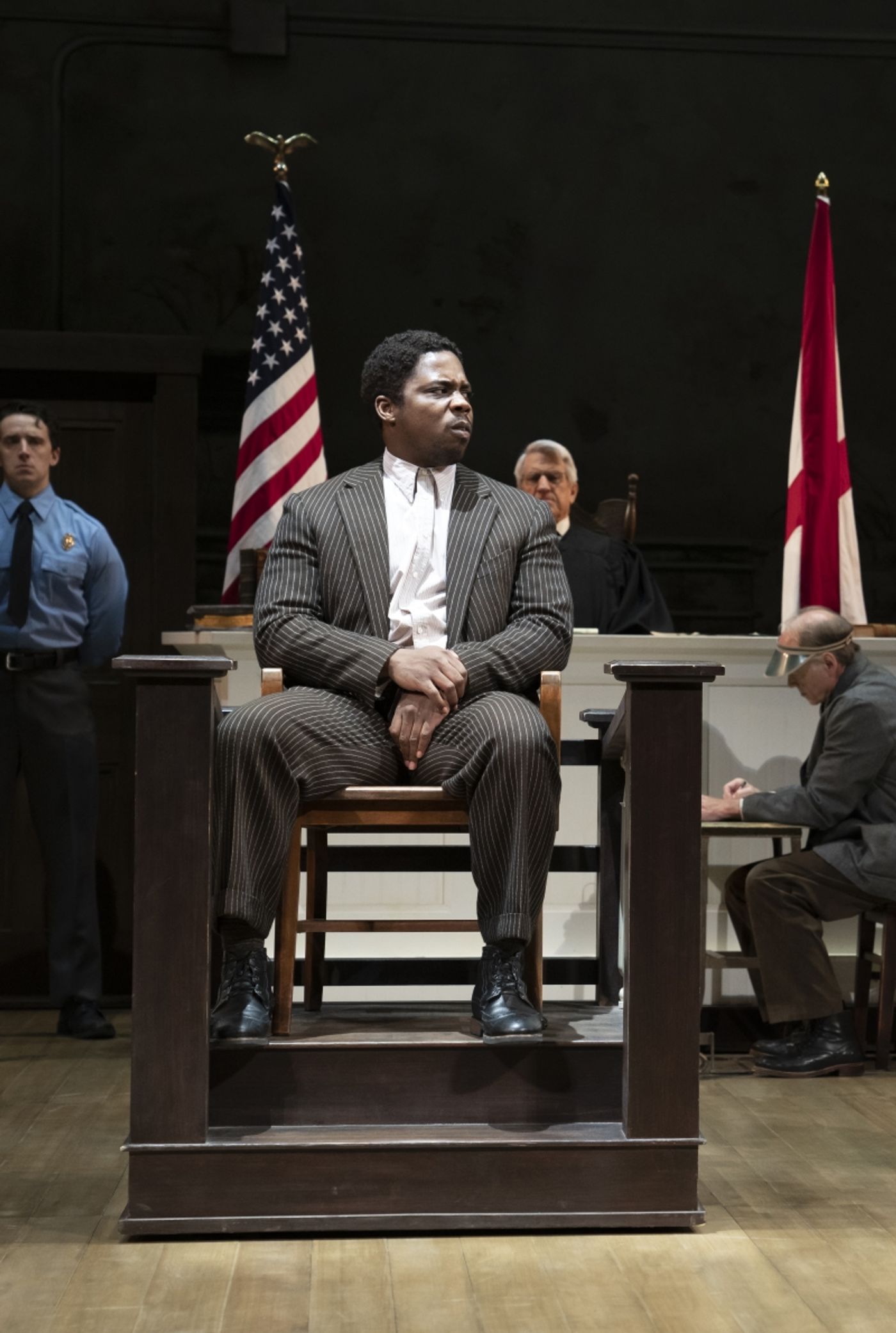
Tom Robinson (played with dignity and conviction by Yaegel T. Welch from the Broadway production) is already on trial in the play's first scene and we learn the repugnant truth of his charges and the crime of rape for which he is unjustly and dishonestly accused. As we move from that initial scene (we are told to "all rise" at its beginning as if we are actually in that Alabama courtroom on a stiflingly hot midsummer morning rather than a muggy, stormy Tuesday night in Tennessee at the same time of year) to find Atticus and his children and the family's retainer/housekeeper Calpurnia (Jacqueline Williams is perfectly cast in the role and her barely seething rage at certain moments reflects the sense of revulsion audience members should be feeling at the same time, out there in the dark, in their protected cocoon of the theater playing make-believe) amid the day-to-day happenings of their lives and we find ourselves immersed in the harsh realities of the racist South in 1934 and beyond.
In its time, Harper's novel was noteworthy for her treatment not only of racial themes in the South of the 1930s (a scant 70 years after the end of the American Civil War, the constant and abiding sense of defeat remained prevalent in Southern society, act and deed and "still today," Sorkin's script reminds us), but she effectively took aim at gender roles in the emerging South, juxtaposed against the backdrop of classism, conflicting levels of compassion among the caste system of the post-war South and the political divide which seems to be even more repugnant and ever-present today.
Thus, Sorkin's choice to infuse his play with a sense of urgency that makes it so relatable for contemporary audiences - while, in essence, no different from Lee's intentions with her original source material - brings the story into the milieu of today's politics, allowing audiences to gain perspective on the turmoil of 2022 through the lens of a much-loved, widely respected work of literary fiction.
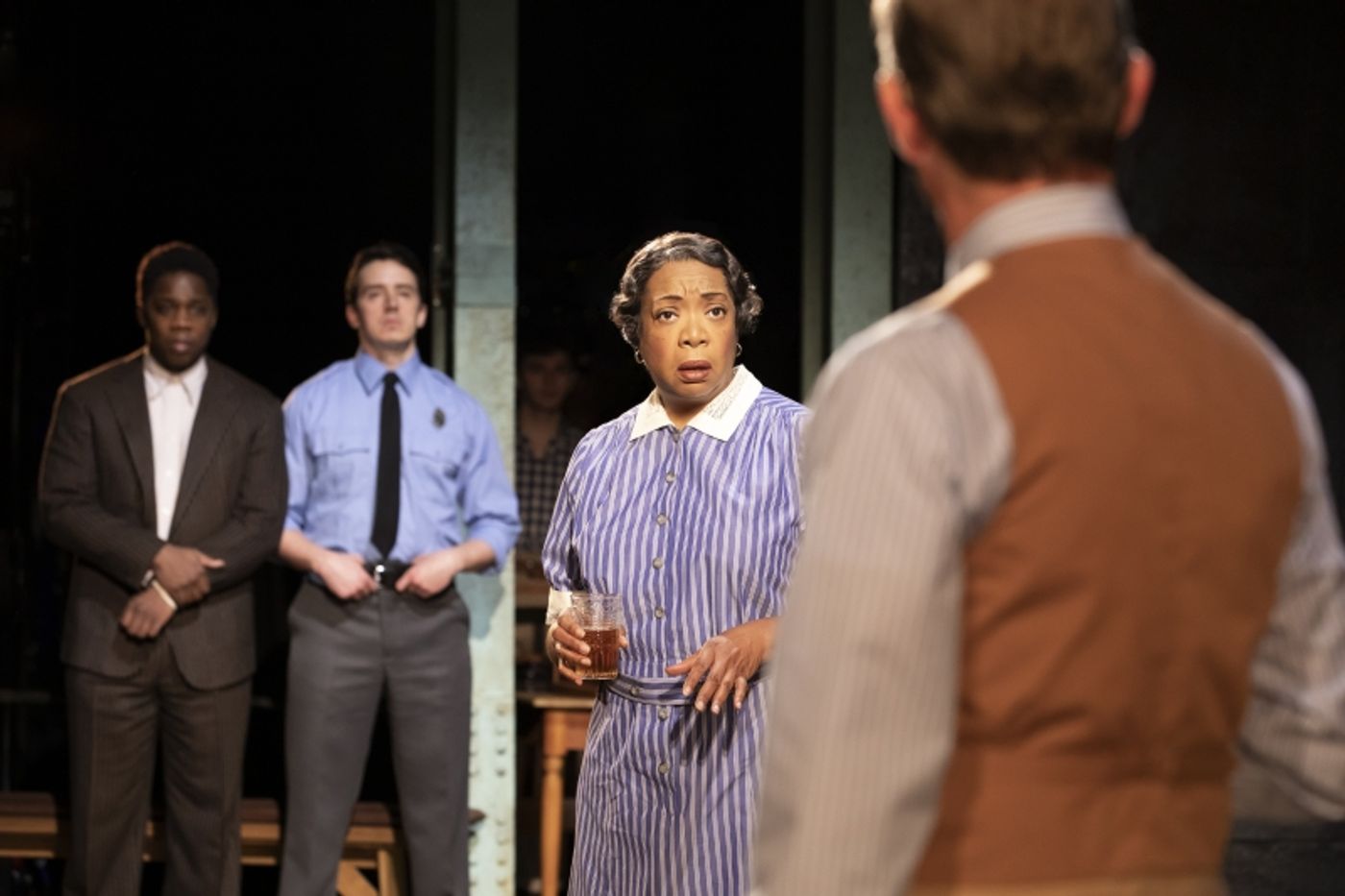
Sorkin, as might be expected, approaches To Kill A Mockingbird from his unique perspective as the creator of television and film entertainments, some with literary roots and others clearly with literary aspirations, and thus approaches the story from a cinematic viewpoint that draws its audience into the onstage action that transpires during the course of the play's elegiac three hours. In his script, Sorkin reorders the events that take place and makes Atticus Finch, rather than his daughter Jean Louise (or "Scout," as she is known to generations of her aficionados) the play's protagonist.
Instead, Scout (played by Melanie Moore in director Bartlett Sher's national company) becomes the play's narrator, along with her brother Jem (Justin Mark) and their neighbor friend Dill (Steven Lee Johnson), who move in and out of the proceedings - sometimes remarking on events past from the perspective of their theatrical present, sometimes as part of those events - and, in the process, they provide the conduit for the audience's total immersion in the play being enacted on the expansive stage of Jackson Hall. The three characters are charming and attractive, the actors versatile and engaging, and we can easily identify with them just as certainly as we did when we read Harper Lee's book when we were the age of Scout, Jem or Dill (who, perhaps inspired by Truman Capote, Lee's childhood friend who informed the character as created, seems more to the point as a young gay boy in this stage interpretation).
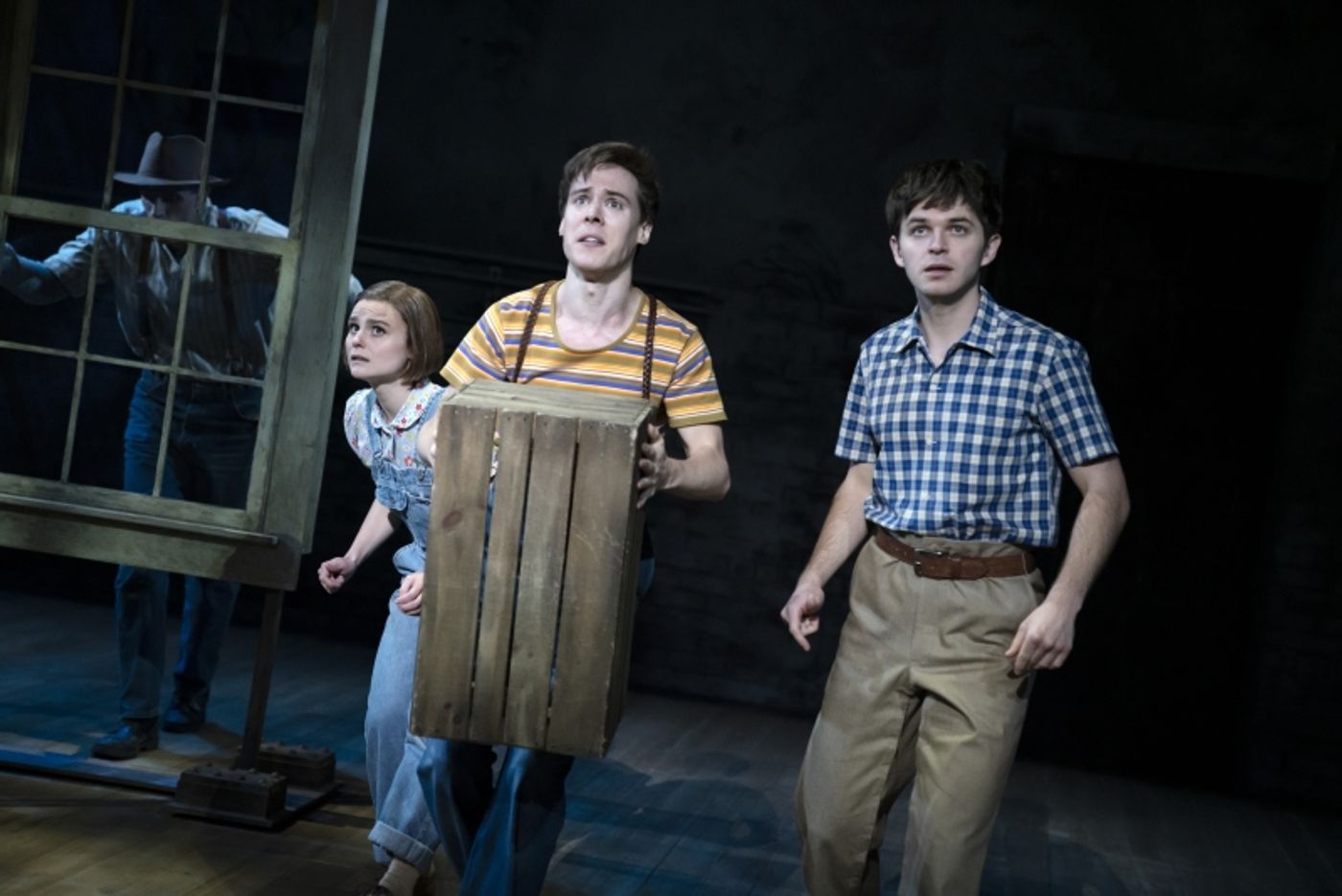
as Scout, Dill and Jem.
Played by adult actors, the three "children" seem sort of amorphous as they move from one non-linear time frame into another then back again and that theatrical conceit achieves the unexpected: You easily forget they aren't children playing the roles, but rather seasoned adult actors who transport you with their sublimely elegant performances. The sense of wonder you experience is not coincidental; obviously, this is the work of a director and his cast who know full well what they are doing and how to effectively guide an audience where they are intended to go. It's breathtaking.
Sorkin's Atticus isn't the knight in shining armor come to rescue the poor blacks of Depression-era Alabama, but rather he seems more a flesh-and-blood man who is doing the best he can by being kind and respectful to all those around him, even if they are undeserving. Thomas takes on the role of Atticus with an easy elegance that seems as well-fitting as the summer suit he wears as the small-town lawyer. His stage presence is palpable throughout the play, but the courtroom scenes allow us to see his take on the character unhindered by the constraints of what has come before. Thomas' (and Sorkin's, let's be real here) Atticus rages at moments, taking the metaphorical gloves off in an effort to save Tom Robinson from being "cooked to death" in Alabama's antiquated electric chair. Instead of the too kind and considerate Atticus we've seen before - you know, the mealy-mouthed one in whose mouth butter wouldn't melt - we see an angry, domineering legal titan fighting for a man's life. I have to tell you: in this day and age, seeing that Atticus can do your heart a whole lot of good and maybe even save your soul in the process.
Among the strong supporting cast, Richard Poe is effective as Judge Taylor, as is David Christopher Wells as Heck Tate. Anthony Natale is particularly compellng as Link Deas, about whom is revealed a surprising backstory that adds weight to his story, and Joey Collins (as Bob Ewell) and Arianna Gayle Stucki (as Mayella Ewell) are strong as the poor white trash who feel superior in their racist disdain. Luke Smith spars well in the countroom as prosecuting attorney Horace Gilmer.
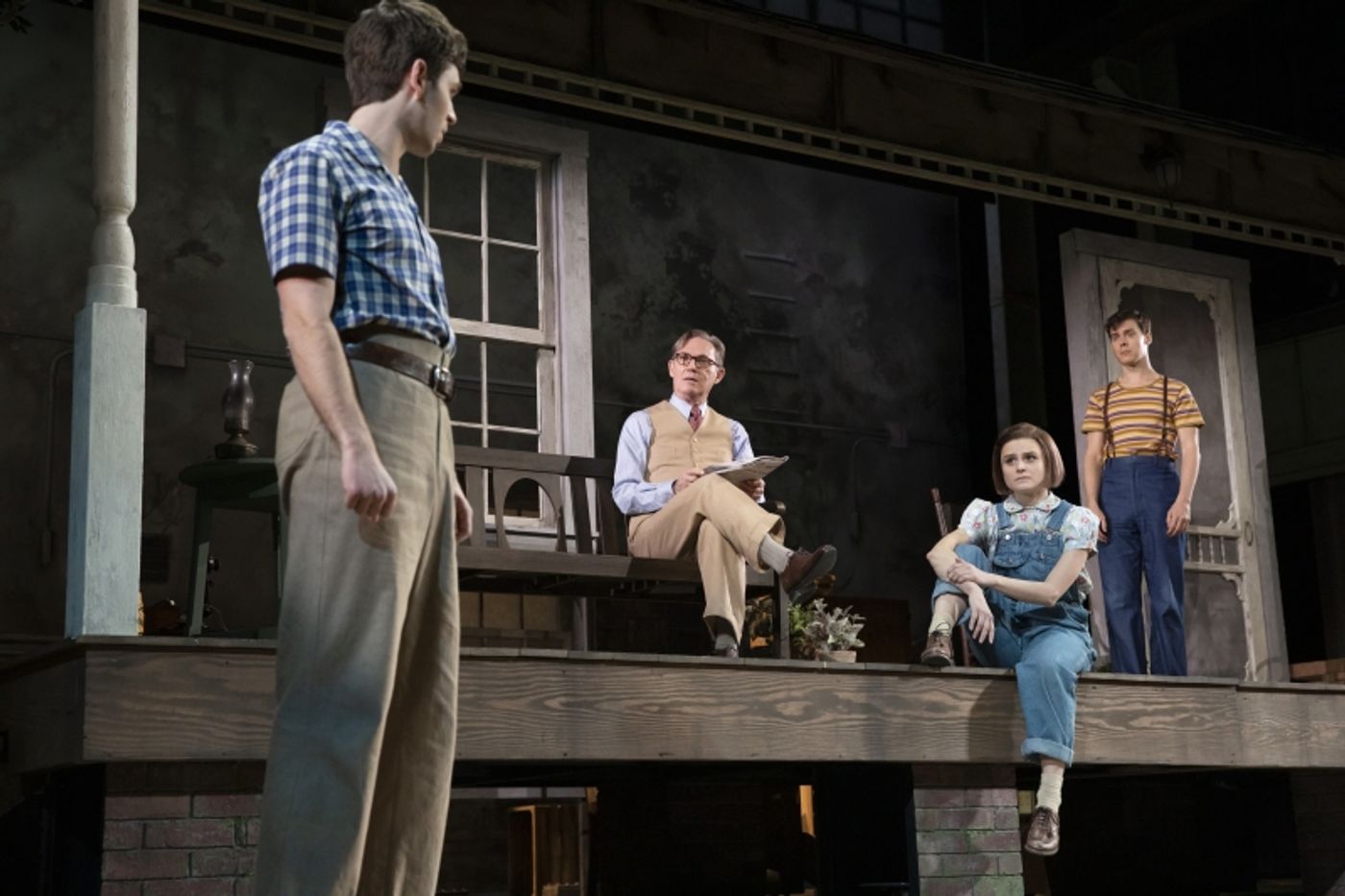
Steven Lee Johnson.
Sher's direction is deft and fluid, with each scene easily transitioning into the next as the play's action continues. Sorkin's script lands its many punches with a forthright directness, to be certain, and there could be a tilt to the over dramatic in lesser hands than his, but instead he gives audiences some lighter moments - some even when raucous laughter rocks the auditorium - that alleviate the darkness that could be pervasive as the story unfolds.
Miriam Buether's atmospheric scenic design beautifully captures the decay of the old South while never seeming pathetic or a faded facsimile of the real thing. Jennifer Tipton's exquisite lighting design captures the Southern Gothic trappings of Lee's story with professionalism and Ann Roth's gorgeous costumes ensure that each character is ideally dressed. Scott Lehrer's sound design is unparalleled as it makes everything said onstage easy to discern and never risks the loss of the beautiful language at the core of the work.
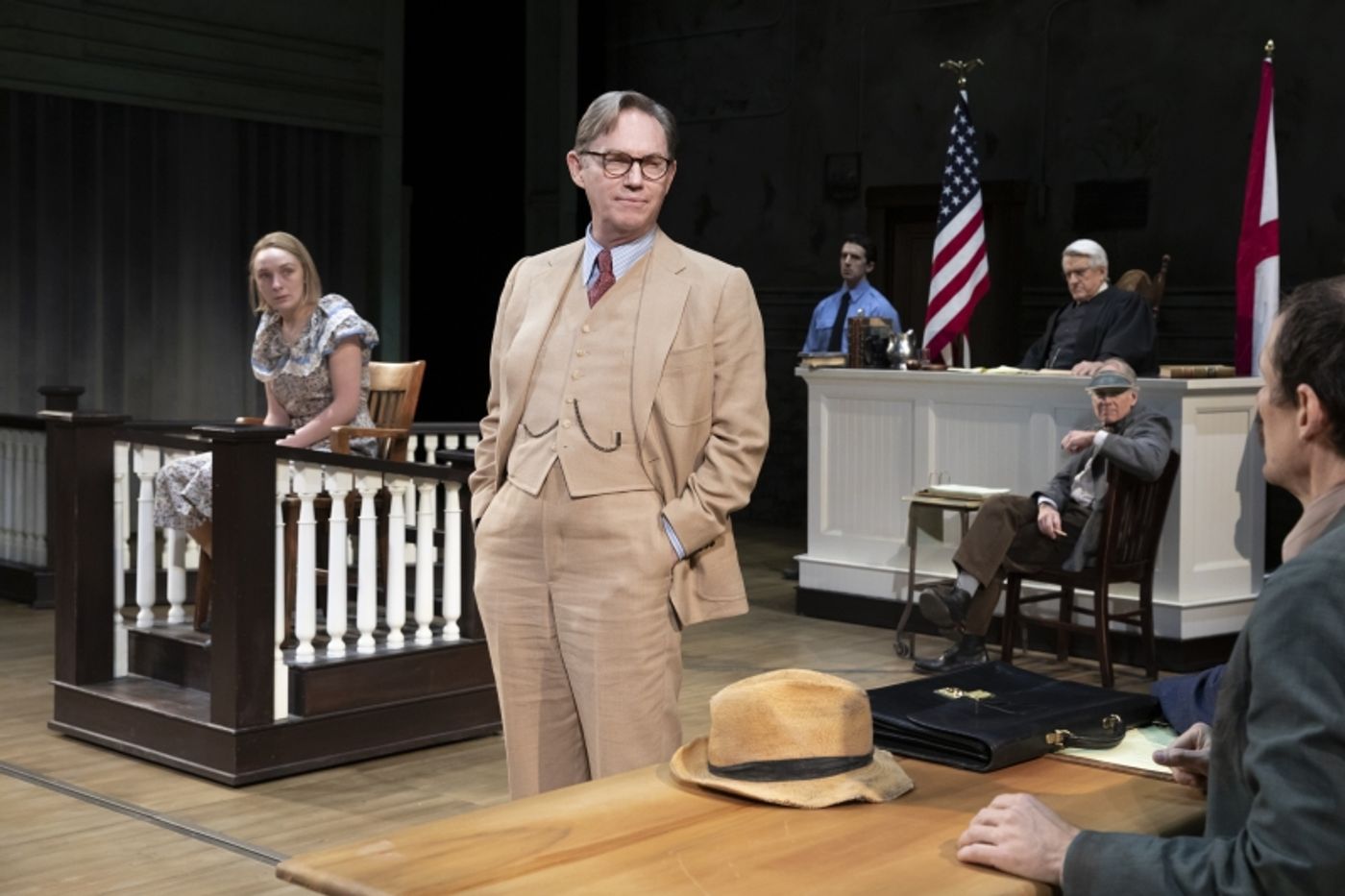 And, attention must be given to the lovely musical score by Adam Guettel, which conveys a sense of timelessness in a place that seems altogether and completely specific.
And, attention must be given to the lovely musical score by Adam Guettel, which conveys a sense of timelessness in a place that seems altogether and completely specific.
Harper Lee's To Kill a Mockingbird. A new play by Aaron Sorkin. Directed by Bartlett Sher. Original music by Adam Guettel. Presented by Broadway at TPAC. Through Sunday, August 14. At Tennessee Performing Arts Center's Andrew Jackson Hall, Nashville. For details, go to www.tpac.org, or call (615) 782-4040. Running time: 3 hours, with one 15-minute intermission.
Photos by Julieta Cervantes
Reader Reviews
Powered by
|
Videos

